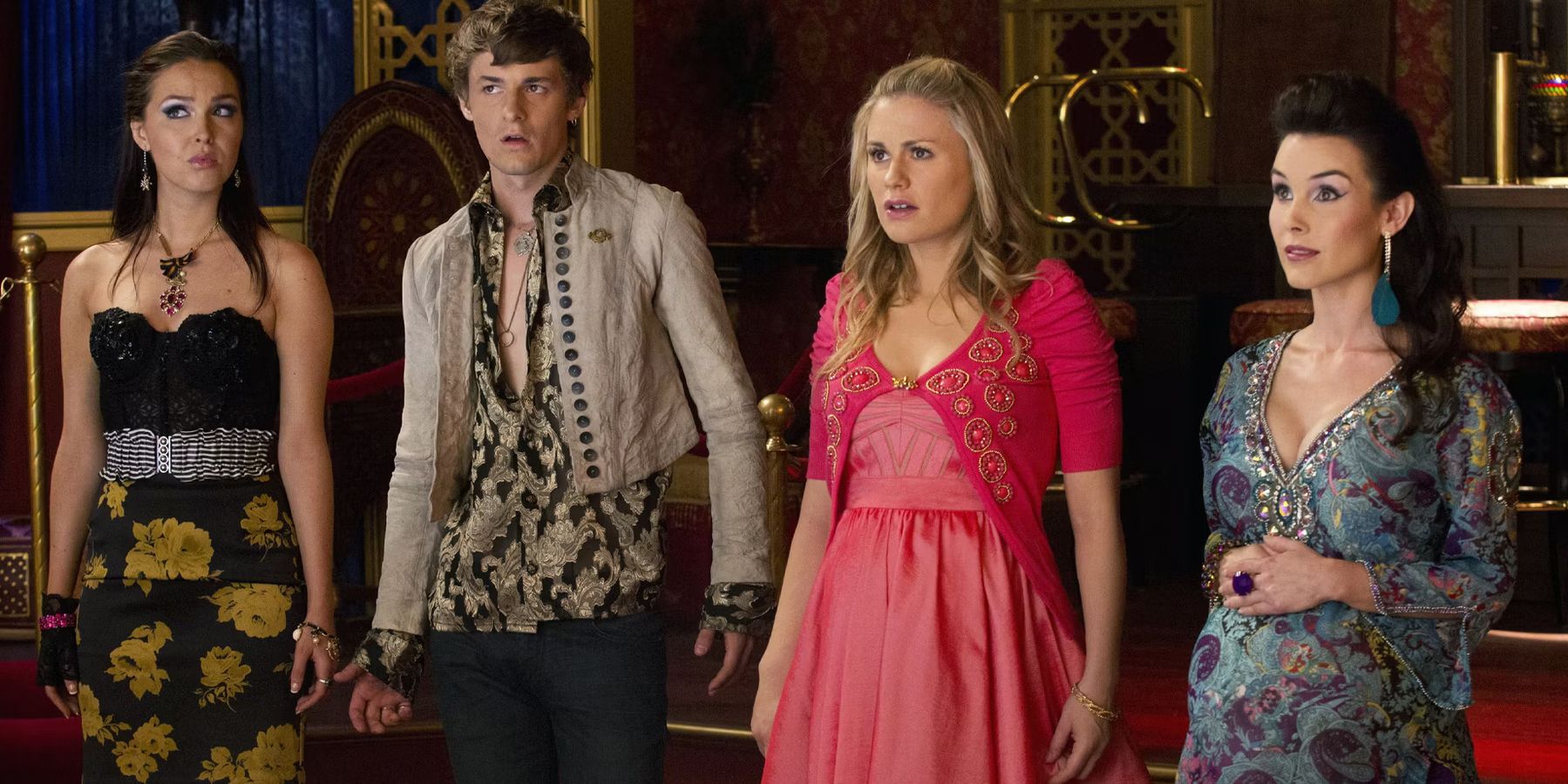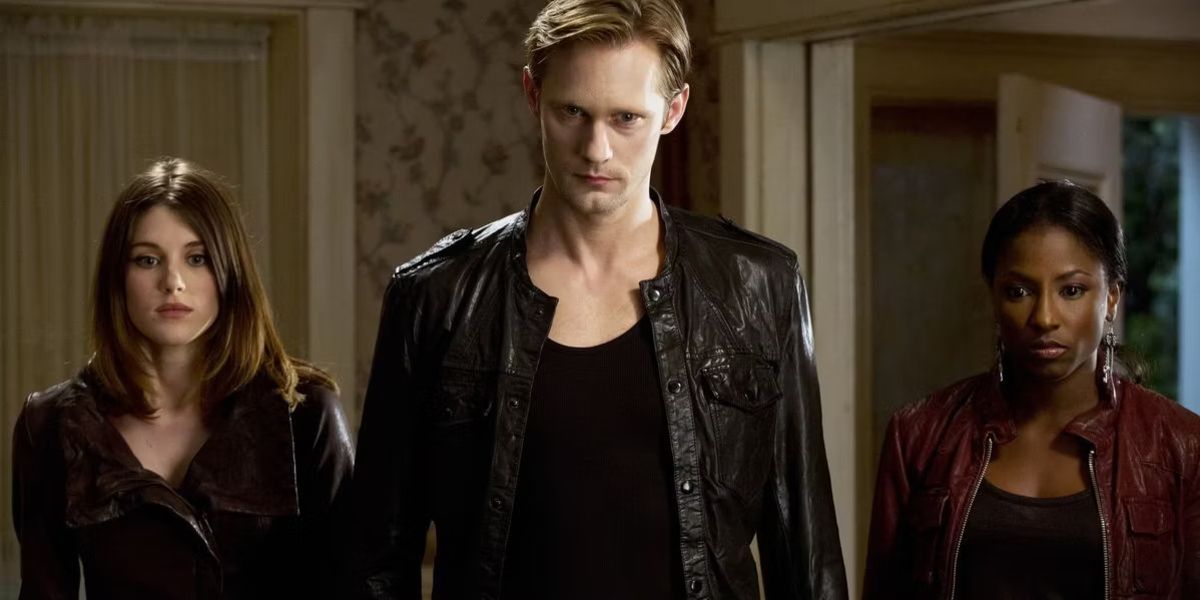True Blood was a blood-curdling success on HBO for several years, becoming one of the cable network's successes. Adapting Charlaine Harris' The Southern Vampire Mysteries book series for television, creator Alan Ball (Six Feet Under, American Beauty) landed a hit during the height of the vampire craze. Taking a romantic tone, True Blood was also injected with topical social commentary through the concept of vampires coming into the light to share the world with humans.
The show came to an end, however, around the same time as the saturation of vampire media in entertainment. Though its timeline would suggest otherwise, True Blood wasn't canceled or ended due to disinterest or negative reception from the audience. Here's why HBO and the show's creative team finally said good night to True Blood.
What Was True Blood About?
True Blood followed Harris's iconic character Sookie Stackhouse, played by Anna Paquin. A psychic waitress in a small town in Louisiana, Sookie fell in love with vampire Bill Compton (Stephen Moyer) at a time when vampires were becoming more and more a part of human society. This happened after the creation of the scientific breakthrough "Tru Blood," an artificial plasma that allowed vampires to abstain from drinking human blood and attempt to live more openly.
Two factions of vampires arose -- seeking either coexistence or domination -- and several other fantasy species were introduced into the show. Humans were also divided on how to deal with vampires, moreso as tensions between the two sides increased. These themes were topical when the show premiered in 2008, with parallels drawn between vampires and minority groups, especially the LGBTQ+ community. The central concept of vampires "coming out of the coffin" only made this allegory even more obvious.
True Blood creator Alan Ball made use of viral marketing and early social media platforms like MySpace to promote its premiere, with vampire documentaries on HBO and a prequel comic being produced. Following its initial success, jewelry and even a soft drink were made, giving the franchise more commercial success than any previous HBO series. This popularity continued into the show's final season, leading some fans to wonder why it came to a close.
Why Did True Blood End on HBO?
While some TV shows conclude due to ratings or behind-the-scenes drama between actors, True Blood had no such difficulties. The ratings remained consistent throughout the series' life span according to Ratingraph -- even improving in some seasons. This gave True Blood a similar level of popularity as HBO's mafia-inspired The Sopranos, which is still regarded as one of the best TV shows of all time. And that devoted fan base allowed it to ride out the wave of vampire fanaticism created by other projects like Twilight.
HBO programming director Michael Lombardo explained to The Hollywood Reporter why the network decided to end the series in 2014. "Every season we sit down with the creator and say ‘Tell us what the next year will be like,'" he said. "And if there aren’t exciting, unbelievable, undeniable ideas in the coming season, we’re questioning. And I think in the case of True Blood, it just felt like we had reached a place where the storytelling was hitting a wall." With no idea of where to take the series, HBO and the show's producers decided it would be best for True Blood Season 7 to be the show's last.
In 2020, there were talks of a True Blood reboot and even Alan Ball was interested -- but the idea was taken off the table in February 2023 due to a similar lack of ideas. The original series, however, remains available to stream on HBO Max and Hulu.



